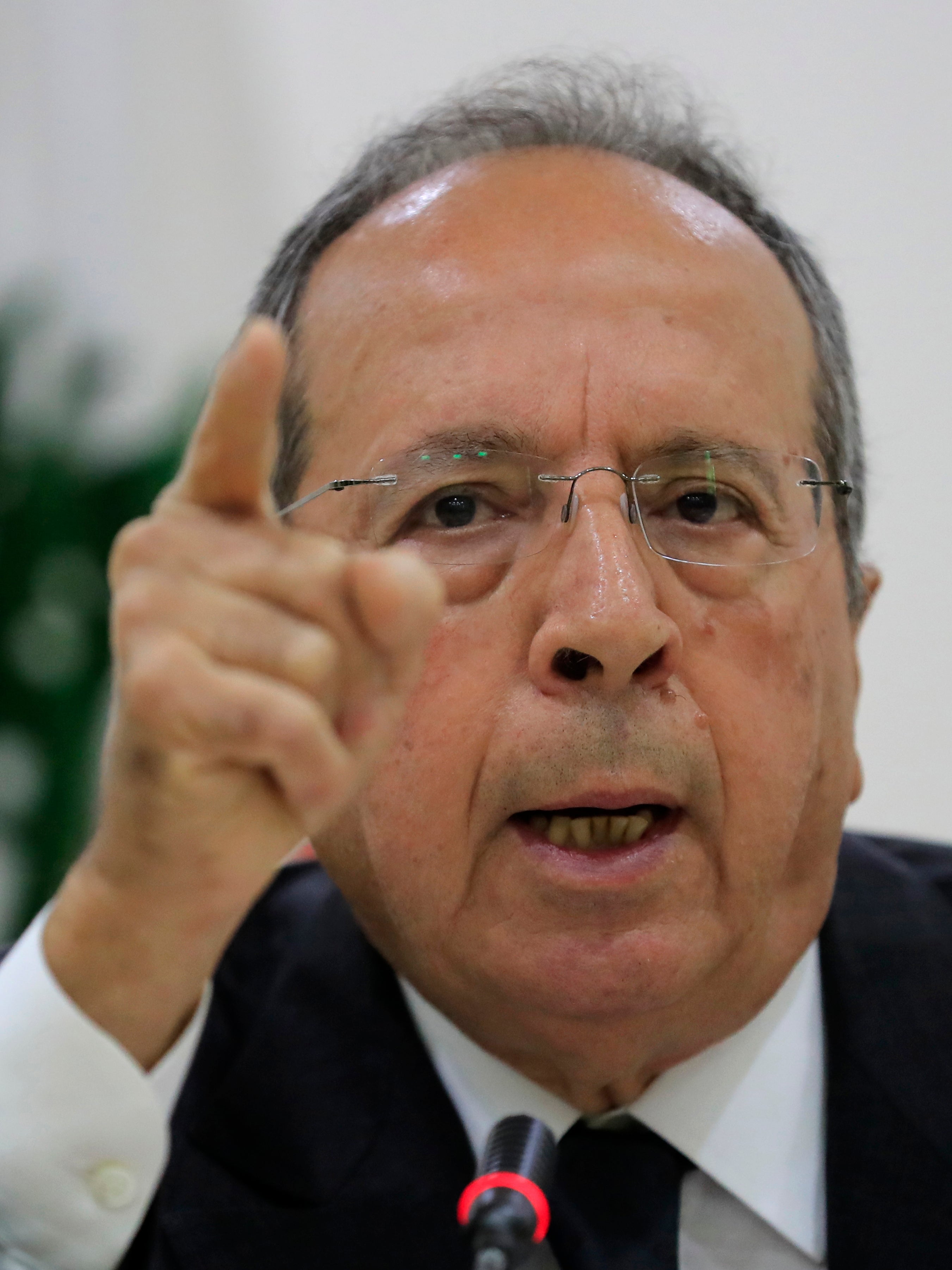Lebanon lawmaker denies US accusation of money smuggling
A Lebanese legislator who was targeted by U.S. sanctions has denied accusations that he smuggled tens of millions of dollars out of his crisis-hit country

Your support helps us to tell the story
From reproductive rights to climate change to Big Tech, The Independent is on the ground when the story is developing. Whether it's investigating the financials of Elon Musk's pro-Trump PAC or producing our latest documentary, 'The A Word', which shines a light on the American women fighting for reproductive rights, we know how important it is to parse out the facts from the messaging.
At such a critical moment in US history, we need reporters on the ground. Your donation allows us to keep sending journalists to speak to both sides of the story.
The Independent is trusted by Americans across the entire political spectrum. And unlike many other quality news outlets, we choose not to lock Americans out of our reporting and analysis with paywalls. We believe quality journalism should be available to everyone, paid for by those who can afford it.
Your support makes all the difference.A Lebanese legislator who was targeted by U.S. sanctions denied accusations on Friday that he smuggled tens of millions of dollars out of his crisis-hit country.
Jamil el-Sayyed, a former security chief and a current member of parliament, challenged his accusers to reveal the name of a government official whom they said helped him transfer the funds.
El-Sayyed was sanctioned Thursday along with two Lebanese businessmen by the U.S. Treasury Department. El-Sayyed is an ally of the militant Hezbollah group.
The U.S. agency said el-Sayyed sought to skirt informal capital controls imposed by local banks since November 2019, and was aided by a senior government official in transferring over $120 million to overseas investments, presumably to enrich himself and his associates. The statement did not name the government official.
The Treasury Department also said el-Sayyed had contributed to the breakdown of the rule of law in Lebanon citing his urging of security forces to kill protesters who gathered outside his home.
Speaking during a news conference in Beirut el-Sayyed denied all the charges, adding that he is ready to go to the United States to be questioned there and defend himself.
“I challenge them to grant me a (U.S.) visa to go. I will go tomorrow and will face them,” el-Sayyed said, adding that if the funds were discovered in “any corner of the world ... they can keep me in jail there.”
“Who is the senior government official? Since you said he is a senior government official, release his name so that we know who he is. Why didn’t you accuse him?” el-Sayyed asked. He also challenged the Treasury Department to say where the money was transferred and invested.
El-Sayyed said that in June 2020, a group of protesters gathered outside his apartment building, causing a mess and trying to break in. The legislator said his pregnant daughter was at home during the incident, and he told the guards “to open fire” if anyone breaks into the apartment. He added that in any country in the world, a person has the right to defend himself if someone tried to break into his home.
El-Sayyed was among four pro-Syrian generals jailed without charge for nearly four years over the 2005 assassination of former Prime Minister Rafik Hariri. El-Sayyed and the three other generals were freed in 2009 for lack of evidence.
The legislator said he visited France this year while he was preparing to file a lawsuit at the United Nations to demand “compensation and apology” over the time he spent in jail. El-Sayyed said that he wanted to prove that at the time when he was in detention, then U.S. ambassador to Lebanon Jeffrey Feltman was putting pressure on U.N. officials to keep him in jail.